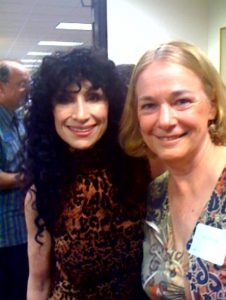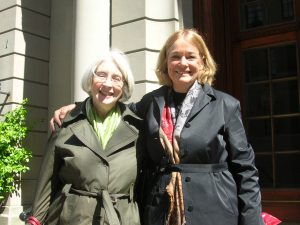I’ve become a big fan of Facebook as a means of keeping in touch with fellow authors. It’s been fun to show up a writers’ conferences and feel that so many people are already friends. I know more about some of them than I do about people I’ve said hello to for twenty years in the mailroom at my college (although I know more about some of them as a result of Facebook as well.)
Some of my author friends are slogging through writing the middle of books and getting little cooperation from their characters, some have newly released novels or are counting the days till release, some are just starting research, and others are resting up for the next one, perhaps still wondering what indeed it might be and whether they have it in them to take it on. Some are dealing with rejection and some with a little more success than their life energy can handle.
But we all know essential things about each other that no one else really can–those things that are part of the private world of being an author. And so it came as no surprise to me that there was an outpouring of comments to Sandra Gulland’s recent post, which she entitled “Post-Finishing Doubts.”
“Now that I have finished the first draft of The Next Novel, I’m awash with doubts. I don’t think I’ve gotten to the heart of the story,” she writes. But he nice thing about first drafts is that it’s not too late. The hard part is that we may feel we’ve already given it everything we can, or are willing, to give. And so the question becomes something akin to what Robert Frost meant by “what to make of a diminished thing.” The book isn’t as good as we wanted or hoped, and perhaps we will have to resign ourselves in the end to John Steinbeck’s sentiment that “It’s not good enough, but it’s the best I can do.” If he felt that way about THE GRAPES OF WRATH, what hope could there possibly be for mere mortals like my Facebook friends and me?
There’s a deeply uncomfortable window of time when one has finished the first draft of a novel and has no stamina or creative juices to call upon to address one’s dissatisfactions or doubts. It’s easy to get a little freaked out at this point. I’m there myself with my novel THE LAWS OF MOTION. I can envision seeing it published some day, but I wouldn’t want it fixed in print just the way it is right now. The problem is that at the moment I don’t know how to make it better, nor do I have the energy to dig right back in, even if I knew what needed to be done.
I’m with Steinbeck on this. I think his attitude is probably the healthiest one to have while negotiating the huge amount of work involved in writing a book. My first pass at a scene won’t be good enough, but it will be the best I can do at the moment. The second pass will be the same, and the third, fourth, and twentieth. And then eventually the whole work really will be the best I can do, and it will be time to send it forth and hope that some of the lessons I learned stick for the next one.
A friend of Sandra’s put it perfectly in her Facebook response: “This may be a ‘keeping still’ time,[to] allow what you’ve done some time to be absorbed without wondering and worrying about it for a bit.” Another recalled those great Orson Welles ads for some cheap wine whose name I have long forgotten. In a stentorian voice he proclaimed, “We will sell no wine before its time.” Perhaps we will finish no book before its time either.


